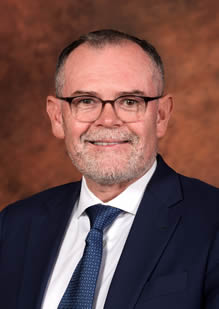Minister D George (Dr): South Africa country statement during UNFCCC COP29
19 November 2024 | Baku, Azerbaijan
His Excellency António Guterres, Secretary-General of the United Nations,
President of the COP29, His Excellency Mukhtar Babayev,
Your excellencies, ministers present here today
Ladies and gentlemen
At COP29, we gather at a critical moment. Climate change impacts are now visible globally, particularly affecting developing economy nations and deepening existing inequalities. Increasing geopolitical tensions and trade disputes risk widening the divide between developed economy and developing economy nations.
For developing economies, COP29 presents a vital opportunity to establish institutional infrastructure supporting ambitious climate action, while addressing hurdles to sustainable development. These two objectives are inseparable – climate change threatens to derail development progress, while failure to decarbonize risks economic marginalization nationally, and disaster globally. Achieving these goals requires resources beyond our domestic capabilities.
The New Collective Quantified Goal (NCQG) on climate finance must deliver trillions of dollars annually. This support must avoid deepening the fiscal burdens on developing economy nations, particularly those struggling with debt, and should be accompanied by reforms to the global financial system, including multilateral development banks.
In South Africa's context, adaptation remains our primary climate response priority. We have experienced devastating impacts, including severe flooding in three provinces, frequent droughts, and extreme weather events, demonstrating the urgent need for action on both mitigation and adaptation. We support the UAE framework for global climate resilience and call for progress on adaptation indicators at COP29.
Regarding mitigation, South Africa's NDC target represents an ambitious contribution considering our circumstances. We are implementing policies to achieve our 2025 and 2030 targets while addressing poverty, inequality, and unemployment. We will submit our first Biennial Transparency Report this year, reporting on our NDC, and are developing our second NDC with consideration of the First Global Stocktake outcome.
The just transition must remain central to our efforts, putting people at the centre, and considering our national circumstances. South Africa needs financial and non-financial support to ensure an inclusive and equitable transition that benefits all sectors, including SMMEs. We support the inclusive transitions approach agreed to at COP28, recognizing that just transitions encompass both mitigation and adaptation, and require substantial international cooperation. The just transition also depends for developing economy countries on our ability to access international markets fairly, and maximize the benefits of the green transition for our economy. Unilateral trade measures which aim to achieve unbalanced climate objectives outside of the framework of the multilateral process, or unfairly restrict global trade in green technology, will only serve to hinder our ability to achieve a just transition, and slow the global effort to address climate change.
We urge developed economy countries to fulfill their commitments, including the $100 billion per annum climate finance target through 2025, to rebuild trust as we work on the post-2025 NCQG. Let COP29 mark the turning point for redefining the global financial architecture to make it fit for purpose – for climate change and for sustainable development – and ensuring international financial institutions address the realities of achieving sustainable development, creating an equitable and resilient future for all nations.
I THANK YOU


